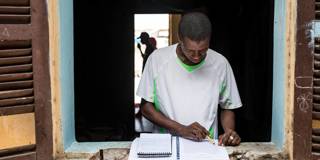Given Africa’s rapid demographic growth, weak public finances, and low private incomes, financing higher education has proven to be a fundamental challenge. A hybrid funding model represents the best chance to provide all young Africans with access to affordable and good-quality colleges and universities.
CAMBRIDGE – On-campus activities at Senegal’s Université Cheikh Anta Diop (UCAD), one of Africa’s largest institutions of higher education, have been suspended since last June, when students protested violently against the jailing of the country’s main opposition leader. The prolonged closure has made life difficult for UCAD students, many of whom normally reside on campus, and disrupted operations, because online classes are not widely available.
The learning gaps that have become visible are exacerbating inequities, fueling social tensions, and threatening the reputation of Senegal’s higher-education system. Calls to reopen UCAD have grown louder, but worsening political conditions – led by the postponement of the presidential election – all but preclude it.
UCAD is far from the only African institution of higher learning in crisis. Recent strikes by students and teacher unions have affected public colleges and universities in Nigeria, Ghana, South Africa, and other countries. These strikes reflect diverse agendas, from political activism to demands for better pay, higher cost-of-living allowances, improved working conditions, and more financial aid for students.

CAMBRIDGE – On-campus activities at Senegal’s Université Cheikh Anta Diop (UCAD), one of Africa’s largest institutions of higher education, have been suspended since last June, when students protested violently against the jailing of the country’s main opposition leader. The prolonged closure has made life difficult for UCAD students, many of whom normally reside on campus, and disrupted operations, because online classes are not widely available.
The learning gaps that have become visible are exacerbating inequities, fueling social tensions, and threatening the reputation of Senegal’s higher-education system. Calls to reopen UCAD have grown louder, but worsening political conditions – led by the postponement of the presidential election – all but preclude it.
UCAD is far from the only African institution of higher learning in crisis. Recent strikes by students and teacher unions have affected public colleges and universities in Nigeria, Ghana, South Africa, and other countries. These strikes reflect diverse agendas, from political activism to demands for better pay, higher cost-of-living allowances, improved working conditions, and more financial aid for students.